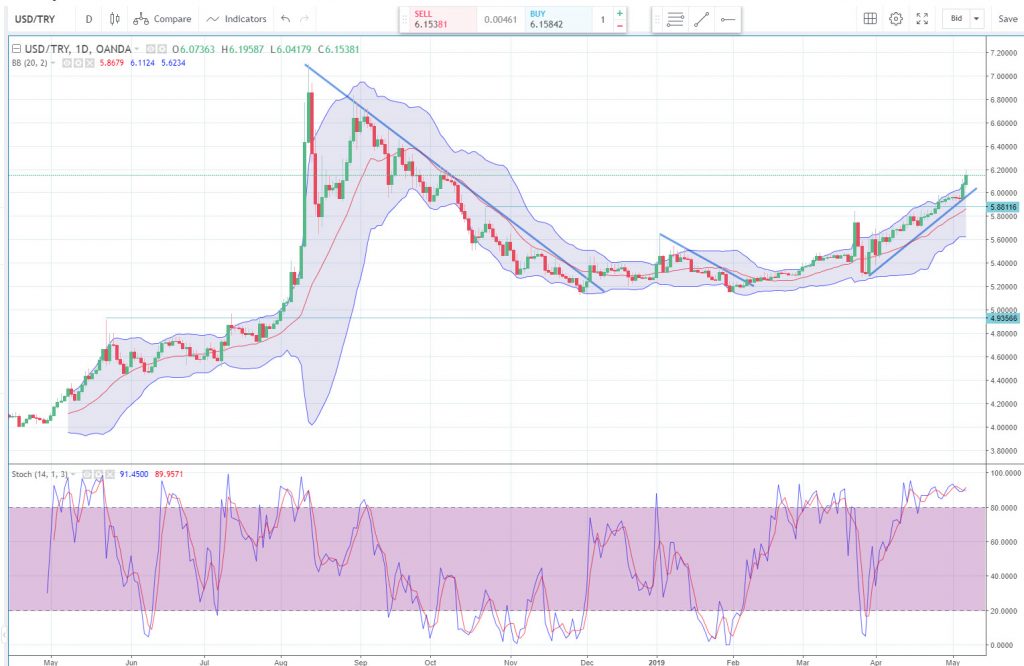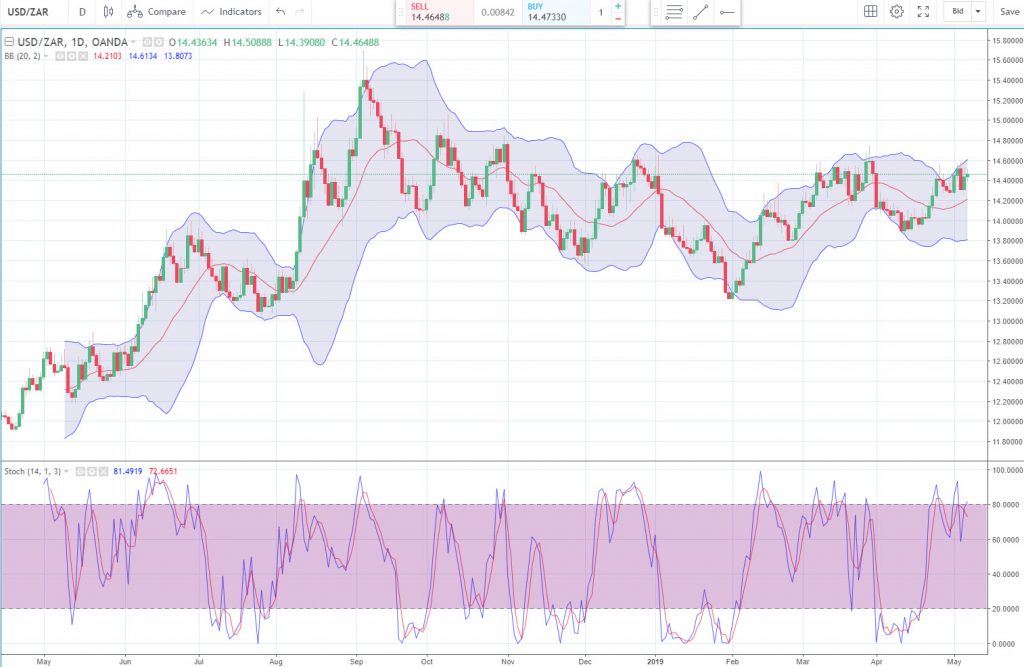While the G-10 currencies have mainly been stuck in frustrating ranges, emerging market currencies are delivering significant moves that are showing no signs that the volatility is going to ease up. Today, most emerging market (EM) FX has been pummeled on the risk aversion flows that stemmed from the lingering trade worries that U.S. – China talks are poised to hit a roadblock at the end of the week. Trump’s threat of increasing tariffs on Chinese goods is likely a negotiating tactic that should not completely derail optimism that a deal will eventually get done over the next several weeks. While the effects of the trade tensions may last another day or two, we should see EM currencies resume to trade based on their country-specific events.
Turkey
The lifa fell the most out of all the emerging market currencies as President Erdogan appears determined use his influence over independent institutions. The decision to redo Istanbul’s municipal vote is a controversial one and many are calling it a blow to democracy. Opposition is immense in Europe, and the loss of democratic standards is likely to be a restraint on foreign investment.
Since February, the lira has weakened 13 of 14 weeks to a 7-month low. If we see the Turkey Central Bank (CBRT) raise rates in an intra-meeting move, we could see the market view that as an opportunity to continue selling the lira. The 6.400 level remains initial resistance, while the 7.000 handle remains stronger resistance. If we see the 2018 high of 7.1209 taken out, some analysts are targeting a major lira collapse to 7.9000. Key support remains the 5.6163 level.
South Africa
Tomorrow’s South African general election is a major risk event that traders see as a two-way risk event. Expectations are for South African president, Cyril Ramaphosa’s ANC party to win, but the fate of the rand will be determined by how big the margin of victory is.
In the 2014 national election, the ANC won 62.2% of the vote, but in 2016 during the municipal elections saw the ANC lose 10 percentage points with a slight win with 55% of the vote. Ramaphosa is expected to remain President and for his party to win anywhere between 54% to 61% of the vote.
A victory in the low 60’s could be very bullish for the rand, whereas as a slight win of 55% would make it difficult for reforms to take place and probably lead to a rally in government bonds, alongside a weaker rand.
If South Africa does not get their fiscal issues under control, they are likely to lose their last investment grade status rating from Moody’s, which would translate to a significant weakening of the South African currency. S&P and Fitch already rate South African foreign debt as junk.
Content is for general information purposes only. It is not investment advice or a solution to buy or sell securities. Opinions are the authors; not necessarily that of OANDA Business Information & Services, Inc. or any of its affiliates, subsidiaries, officers or directors. If you would like to reproduce or redistribute any of the content found on MarketPulse, an award winning forex, commodities and global indices analysis and news site service produced by OANDA Business Information & Services, Inc., please access the RSS feed or contact us at info@marketpulse.com. Visit https://www.marketpulse.com/ to find out more about the beat of the global markets. © 2023 OANDA Business Information & Services Inc.





